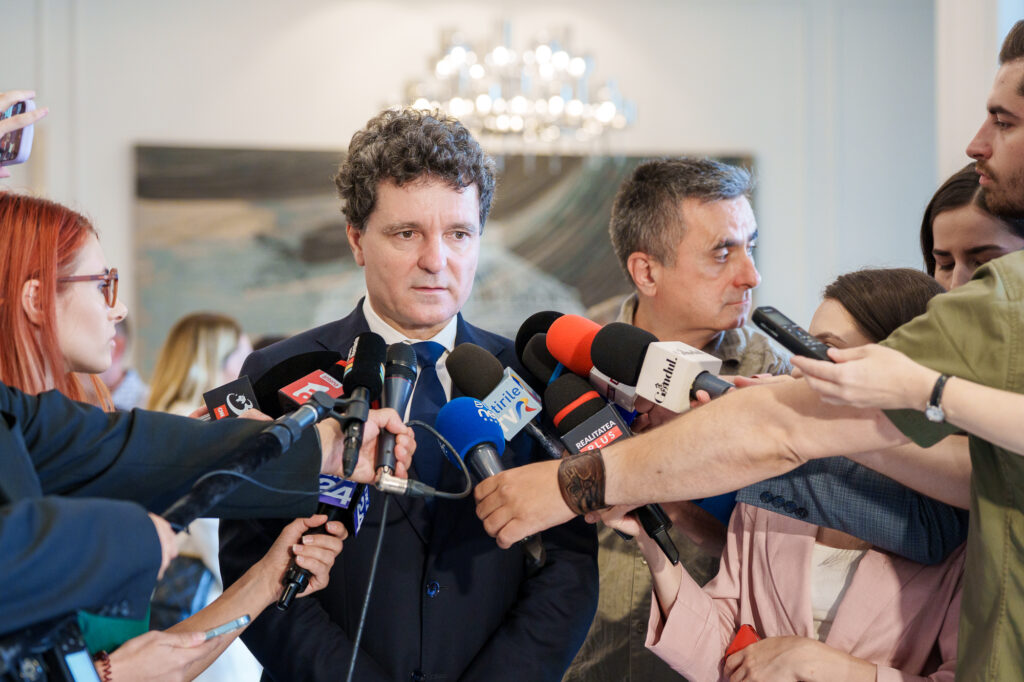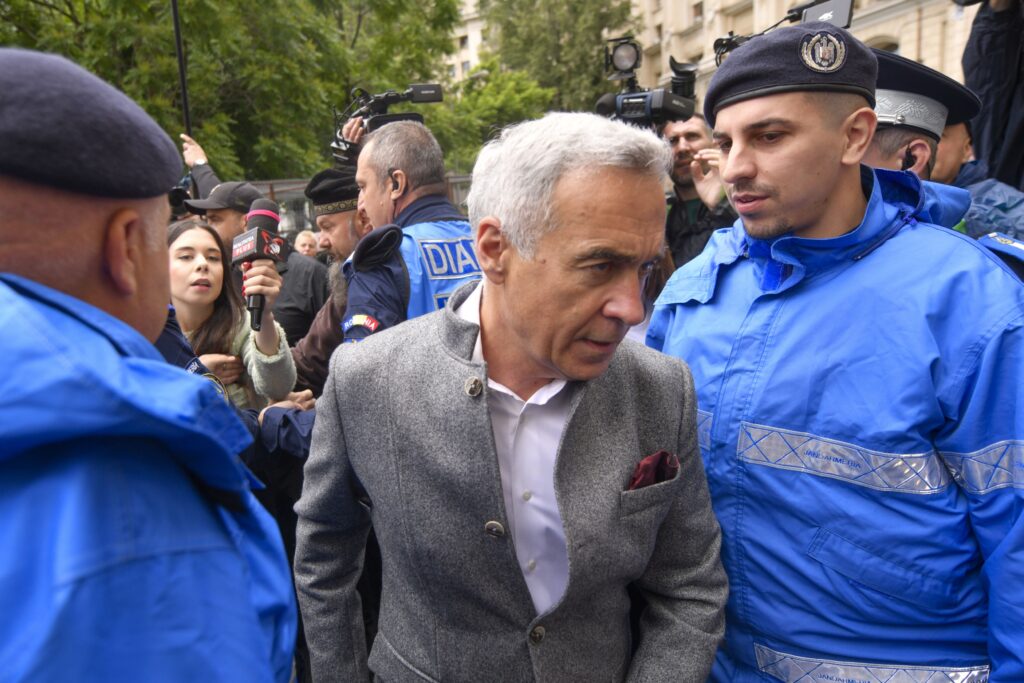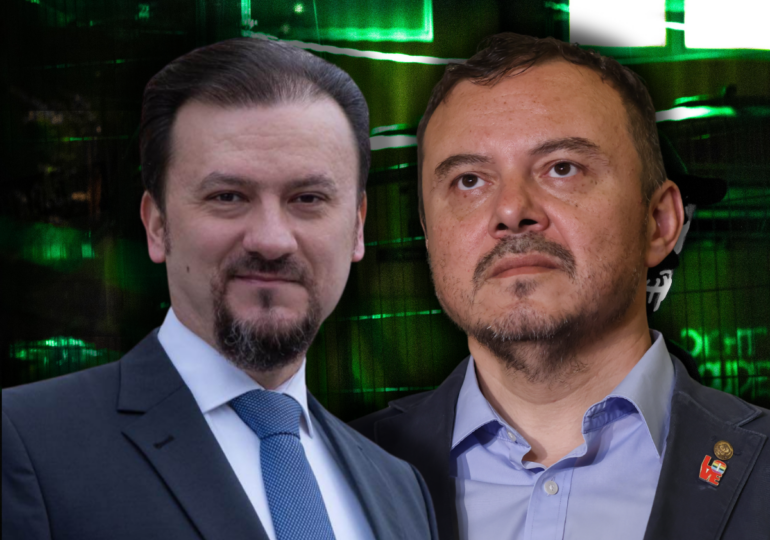At the highest level of the Romanian state, it has been acknowledged that our country is the target of powerful, consistent, and continuous underground operations carried out by the Kremlin for at least a decade.
The attacks have developed and intensified, utilizing all digital structures, social networks, and increasingly employing elements of artificial intelligence with the aim of causing as much damage as possible.
Nicușor Dan, the President of Romania, stated in an interview that „there has been a gradual increase, on the one hand, of cyber-attacks on infrastructures, and on the other hand, of propaganda tools that have slowly and steadily influenced various areas of society.”
Although authorities in Bucharest show signs of awareness of the danger, they are doing very little to counteract Russia's hostile activities.

"... in Romania, the lack of a decision is not necessarily the result of a conspiracy, but rather a result of overlapping misunderstandings and lack of interest. The main preoccupations of political decision-makers are more of a personal nature - what car to buy, how to manage their affairs - rather than concerns regarding the development and evolution of the state," stated Cătălin Teniță, an expert in digital communication, in an interview with Spotmedia.ro.
Coordinated Manipulation of the Algorithm
The presidential elections in November 2024 were annulled due to interference by Russian representatives, who successfully promoted intensively on TikTok the candidate Călin Georgescu, a virtually unknown person to the Romanian public until that time, who did not adhere to any campaign rules, violating several laws regarding political candidate financing.

At that time, reports from intelligence agencies and analyses by foreign experts highlighted the methods of interference carried out through TikTok, the social network controlled by the Communist Party of China, the platform on which Kremlin agents acted to manipulate Romanian voters.
"The rapid increase in visibility of candidate Călin Georgescu on the TikTok platform appears to have been the result of a sophisticated astroturfing campaign, involving coordinated manipulation of the recommendation algorithm through massive posting of videos and comments containing specific hashtags and keywords. In fact, this campaign was based, on the one hand, on the coordinated action of account networks and, on the other hand, on the exploitation of the popularity of influencers who were covertly paid," as stated in the report published by the Viginium organization (Vigilance and protection against foreign digital interference), commissioned by the French government.
CNA Awaits 200,000 Euros from the Government to Effectively Combat Romania's Hostile Campaigns on Social Networks
10 months after the shocking event, authorities in Romania have done little of substance and visibly to remedy the immense security vulnerability in the face of Russia.
In other words, CNA, at this moment, following reports from organizations and citizens, can take down a fake news post, but does not have the necessary tools to block a hostile campaign, consisting of thousands and thousands of posts, carried out by bots, influence agents, and useful idiots.
The in-depth social network monitoring program costs around 200,000 euros, and CNA is still awaiting government approval for the acquisition.
Valeriu Jucan, Vice President of the institution, when asked how soon results would be seen on social networks after implementing the program, confidently responded that the effects would be visible "immediately."
An Alert Regarding TikTok, Two Years Old, Politically Buried
As early as May 2023, the DNSC (National Cyber Security Directorate) issued a recommendation to "authorities and public institutions in Romania to prohibit the downloading, installation, and use of the TikTok application on service devices," but not much happened.
Aside from STS (Special Telecommunications Service) and the Ministry of Defense, which publicly announced that they took measures following the recommendation, everything derailed into political discussions, delays, and ministers evading responsibility, so the recommendation was buried until the days following the election annulments when the possibility of banning TikTok was once again discussed.

The discussion also revealed that a vicious circle has been created. Many politicians use social networks to promote themselves and have no interest in imposing restrictions or banning certain applications because that would limit their own communication capacity with voters.
Furthermore, a true industry of their "influencers" has emerged, indirectly earning money from fake news, language violence, and conspiracy theories that they generously promote.
The sensationalism and aggressiveness of posts and video clips, many of which have no connection to reality, help them increase their number of followers so that this audience can be sold to marketing agents for promoting various products and services.
The truth, the facts, are often mundane, boring; the reasoning and arguments are hard to follow, often incomprehensible to those without a high level of education, so most people are attracted to extraordinary statements loaded with emotion, which scare, shock, and offer simplistic explanations but have nothing to do with reality. You can't really make money on social networks if you deal with the truth.
Communication Strategy Is Not Done During Lunch Break
Valeriu Jucan, vice-president of CNA, says that institutions in Romania need to rethink and rebuild their communication strategies.
"Last November, Romania faced an extreme situation that raised the level of tension and confrontation in society. We must learn to reduce these effects," the official stated.
"Ministries need to understand that communication strategy is not optional and it is not done during lunch break. No matter how much software we have, if we do not communicate effectively, it's just a teaspoon used in the ocean. We need to make a joint effort: to communicate, to react, to no longer remain apathetic," added the vice-president of CNA.

